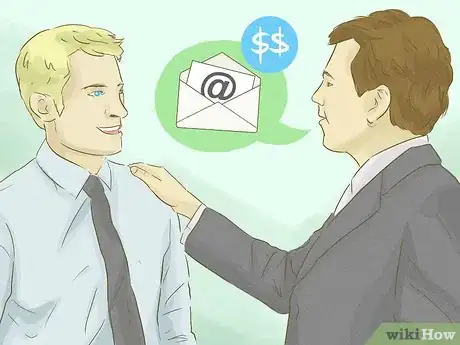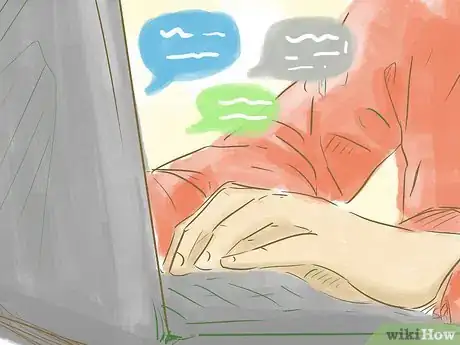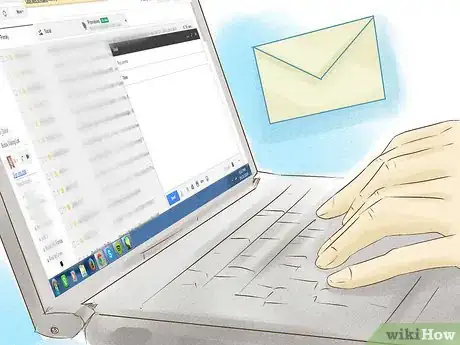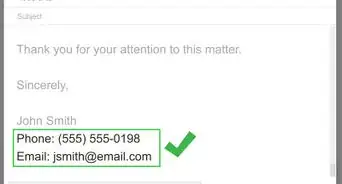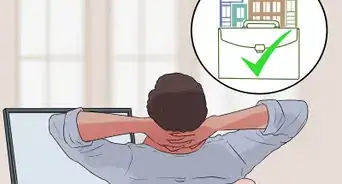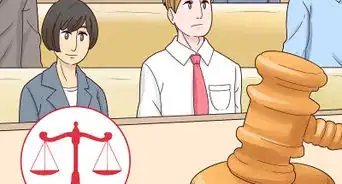X
wikiHow is a “wiki,” similar to Wikipedia, which means that many of our articles are co-written by multiple authors. To create this article, 9 people, some anonymous, worked to edit and improve it over time.
This article has been viewed 46,205 times.
Learn more...
Job transitions can be stressful, but writing your resignation letter itself doesn't have to be intimidating. You may be allowed to resign by email (not a text).
Steps
-
1Avoid unnecessary stress: Resign gracefully and leave things with your old employer on good terms; so, you can move on to your next endeavor without burning bridges. It is customary to provide written notice of resignation, and if your employer will accept it, you might like to resign via email. You might present your situation using your phone (email), tablet, lap-/desk-top to do email (avoid using a fax, as the print is often not clean -- and although a postal letter should work, as well, that can be very slow).
-
2Consider talking to your manager in person, about your intentions. If you have a good relationship with your leadership and your resignation might come as a surprise, it may be better to broach the subject in person, less formally, first..Advertisement
-
3Avoid blindsiding them with an unexpected email. Be ready to provide notice in writing shortly after stating your intent to resign, to make sure there's a record of your notice.
- Happy feelings for all depends on your job environment and the terms you're leaving on; if the situation is tense or your work environment is very formal, providing written notice immediately might be beneficial so that you have a paper trail of all communication regarding the resignation.
-
4Don't be intimidated, but be polite and professional, above all. Just because you're resigning doesn't mean you should air or discuss your grievances about your boss, coworkers, or company. You want to maintain good terms to maintain the lines of communication. You may need references from your employer in the future, and maintaining a network of positive work relationships can be very valuable to your career growth.
-
5Follow business email format. There's generally no need for a letterhead on an email, but follow the conventions for regular business emails. State all the necessary and relevant details about your department, designation, work experience, date of leaving and the reason of leaving.
- Open the email with a greeting. Try to match the tone normal to your company correspondence, erring a bit more on the formal side; if in doubt, be professional but friendly.
- Mention clearly that you are intending to resign from your position. You may say something like, "I hereby submit my resignation as [your position here] effective on July 12, 2015" or "Please accept this email as notice of my resignation. My last day of employment will be July 12, 2016."
- Optionally, state the reason for your leaving straightforwardly. This isn't the time to air grievances or dive into your family drama, and giving a reason is unnecessary. If you do want to explain why, just let them know, for example, "I have been offered a position elsewhere and decided to take it". Or for instance, "I'm leaving for personal reasons".
- Clearly note the last date of your job there, that is most agreeable with your employer.
- Offer, if appropriate, to help with finding or training a replacement. You don't necessarily "owe" your employer that, but you may hold a lot of company knowledge that needs to be transferred to someone new. If you're willing to help with recruitment and knowledge transfer, state that.
-
6Leave your manager feeling warmly toward you, rather than angry about your resignation, by maintaining a friendly tone. End the email on a sincere note:
- Thank the employer for the opportunity they provided you in the company.
- Point out something in particular that you appreciated about your role, the company environment, management or your employer.
- Explain why you liked that, because sincerely explaining your appreciation about the job can make a lasting, powerful impression. It can reflect well upon your future career, including employment references.
- Close with,"Kind Regards" or "Wishing you the best," followed by your name or signature.
- Give it a final read to correct any grammatical or spelling errors.
-
7Leave gracefully. Try to focus on the positive; you may well have worked there for a considerable amount of time and would have learnt some valuable things there. A good rapport with the office colleagues goes a long way. You may also need their references in the future for your new job.
- When you seek jobs after leaving one, you may be asked about your previous work experience, and you want it to be positive, as they may get in touch with your previous employers to talk and learn more about you.
-
8Beware of leaving without giving notice. It's customary to give at least two weeks notice before leaving, and in more senior positions, it's often best to give even more. If you must leave without notice be aware of your company's policies. Some employment contracts specify requirements and consequences for failure to give notice, and it may affect the benefits you receive.[1] It will almost certainly have an impact on your relationship with your former boss and coworkers.
Advertisement
Community Q&A
-
QuestionShould I write a resignation as an attachment to an email, or compose it directly?
 Community AnswerCompose it directly. Attaching it to other documents may make it look taken for granted. Resignation is serious and needs to be dealt with individually.
Community AnswerCompose it directly. Attaching it to other documents may make it look taken for granted. Resignation is serious and needs to be dealt with individually.
Advertisement
Warnings
- Leaving without returning any piece of office property may result in legal actions, a fine or both. Hence, make sure to take what belongs to you, and return what is theirs before leaving.⧼thumbs_response⧽
Advertisement
References
About This Article
Advertisement

